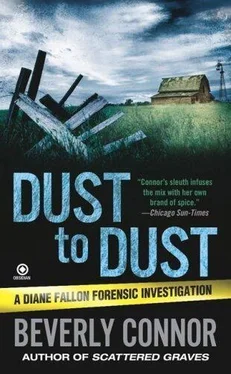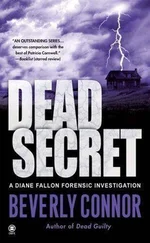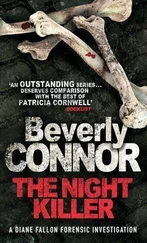Beverly Connor - Dust to Dust
Здесь есть возможность читать онлайн «Beverly Connor - Dust to Dust» весь текст электронной книги совершенно бесплатно (целиком полную версию без сокращений). В некоторых случаях можно слушать аудио, скачать через торрент в формате fb2 и присутствует краткое содержание. Год выпуска: 2009, ISBN: 2009, Жанр: Триллер, на английском языке. Описание произведения, (предисловие) а так же отзывы посетителей доступны на портале библиотеки ЛибКат.
- Название:Dust to Dust
- Автор:
- Жанр:
- Год:2009
- ISBN:9780749941888
- Рейтинг книги:5 / 5. Голосов: 1
-
Избранное:Добавить в избранное
- Отзывы:
-
Ваша оценка:
- 100
- 1
- 2
- 3
- 4
- 5
Dust to Dust: краткое содержание, описание и аннотация
Предлагаем к чтению аннотацию, описание, краткое содержание или предисловие (зависит от того, что написал сам автор книги «Dust to Dust»). Если вы не нашли необходимую информацию о книге — напишите в комментариях, мы постараемся отыскать её.
Dust to Dust — читать онлайн бесплатно полную книгу (весь текст) целиком
Ниже представлен текст книги, разбитый по страницам. Система сохранения места последней прочитанной страницы, позволяет с удобством читать онлайн бесплатно книгу «Dust to Dust», без необходимости каждый раз заново искать на чём Вы остановились. Поставьте закладку, и сможете в любой момент перейти на страницу, на которой закончили чтение.
Интервал:
Закладка:
It was Ross Kingsley, an FBI profiler friend of hers. He and Frank were drinking coffee and laughing over something.
They rose when she entered holding her dress over her arm and clutching her evening bag and heels in her hand.
“Diane,” said Frank, his blue-green eyes sparkling as he spoke, “look who dropped by.”
Something was up. Diane could tell by the way his eyes crinkled at the corners as he smiled at her.
She hadn’t seen Ross in several months. When she first met him, she didn’t think he looked like an FBI agent. She still didn’t. He looked like a college professor, with his neatly trimmed beard and tweed sport coat. She noted some small changes since she last saw him: His brown hair was a little longer, and he looked tanned. He must have been on vacation.
“Ross, this is a surprise. How are you?” said Diane.
“Quite well, thank you. I hope this is not inconvenient. I should have called-you might have been in a cave somewhere-but I had to be in Rosewood anyway, so… anyway, here I am.”
Frank looked at the distressed dress over her arm, arched an eyebrow, and looked back up at her.
“Long story,” she said.
“Did you have to go to the hospital?” Frank asked.
Diane knew he was only half joking.
“No,” she said, smiling sweetly at him. “I was lucky. It was a short drop.”
She noticed Kingsley had a briefcase. It was sitting on the floor near his feet. This was business. The last time he came to her about business hadn’t turned out well. Actually, it eventually turned out well, but the journey was hell. He followed her gaze.
“I have something I would like to talk to you about,” he said.
“Okay. Would you mind if I hop in the shower and change into some fresh clothes first? I’ve had an eventful morning that began long before dawn. It won’t take me long,” she said.
“Sure,” said Kingsley. “Frank is being a very entertaining host.”
Diane went into the bedroom, stripped off her clothes, and got into the shower. The warm water felt good on her sore muscles and she would have liked to stay longer. But she hurriedly washed her hair, soaped up her body, and rinsed off. Frank came in as she was dressing.
“You all right?” he asked.
“Fine. I’ll tell you about it in a minute.” She smiled and kissed him. “Really, I’m fine this time. I only rolled down an embankment.”
He laughed and left the room. Diane finished dressing in slacks and a sweater and combed back her short wet hair.
Frank had her a cup of fresh, steaming coffee sitting on the table next to her favorite chair when she came back into the living room. It felt good to get comfortable in the cozy room with its stuffed chairs, polished wood, and sunny, cream-colored walls. There was no fire in the fireplace, but its presence in the room dialed up the cozy factor. Ross Kingsley certainly looked comfortable.
“So,” said Kingsley, “what happened this morning? I’ve had interesting mornings myself, but I don’t think they ever quite reach the same level of interest that yours do.” He grinned and took a sip of his coffee.
Diane told them about the early morning’s events, leaving out details of the case. Kingsley listened with a combination of openmouthed disbelief and amusement. Diane tried to make it more of a comedy of errors than the real danger it was. Frank had his usual, I-can’t-let-you-out-of-the-house-can-I expression on his face.
“As I said, my mornings aren’t nearly as interesting,” said Kingsley. He paused for a moment as if looking for another excuse not to get down to his business.
“How’s the FBI?” asked Diane.
“I’m not with the FBI anymore,” he said.
Diane hadn’t expected that. Ross had seemed so comfortable there. “I wasn’t aware,” she began.
“I had an identity crisis. I discovered I wasn’t wearing clothes; I was a fraud,” he said.
Diane glanced over at Frank. He looked as puzzled as she felt.
“You’re going to have to explain,” she said.
“I came to the realization as I was working on my book on profiling that it was all smoke and mirrors. I was a con, no different from those psychic-astrologer folk you visit at carnivals for a psychic reading,” he said.
“I’m not sure I understand,” said Diane.
“I’d been regarding profiling as if it were a science,” he said.
“You have repeatedly told me it isn’t an exact science, that it’s a tool,” said Diane.
“I know I said that, but down deep I believed it was something more than that. I thought it rested, at least, on good psychological models that were verified by empirical studies, hard data, statistics, and probabilities.”
“What changed your mind? How did you come to your epiphany?” asked Frank.
Frank, Diane knew, was a critic of profiling, so he probably approved of this turn of events.
“Looking at some of the research done in the UK on profiling and case histories. Looking back at my own work and seeing in reality how fuzzy some of my profiles and those of my colleagues were.”
“Like… he’s someone you wouldn’t suspect of being violent,” said Frank.
Diane smiled and Kingsley nodded. “You know, before now, I never really realized how that statement fit most people.” He shook his head. “So many descriptions are like that-‘He’s someone who tends to be a hermit, but sometimes enjoys being with friends.’ You know, when I read my profiles in hindsight, I am astounded at how hazy and contradictory many of them were. They would be concrete enough to point to particular individuals, and yet vague and general enough to fit a lot of very different people. I mean, the profiles sounded good, but what did they really say? I don’t know how detectives got anything worthwhile out of them. And the lack of consistency. You have two profilers evaluate the same case and their profiles point in completely different directions. You remember the BTK killer?”
Diane and Frank nodded.
“A little,” said Diane. “The serial killer in Kansas?”
“I didn’t work on his profile, but I studied it. He was profiled out to be basically lower class, an outsider, probably unmarried, and uncomfortable with women. When he was caught, he turned out to have been married for thirty years, a father of two children, president of the congregation council of his church, a Cub Scout leader, and a right-upstanding member of his community.” Kingsley shook his head again. “They got some things right, but only because so many of the descriptions were so general, they would have fit about anyone.”
“How did they catch him?” asked Diane.
“Old-fashioned detective work and a little trickery on the part of detectives,” said Frank. “The killer was sending the police taunting messages. They got him to send a message by floppy disk, telling him there was no way to trace it. There is, of course, and they traced it back to him.” He grinned.
Diane could see that it pleased him that computer technology had played a part in the apprehension.
“There was a lot more to his capture, but that’s the Cliffs Notes version,” said Frank.
“It was a research report that first tested my faith,” said Kingsley. “A British study analyzed a couple hundred criminal cases in which profiles were used by the police. Profiles led detectives to the guilty party in fewer than three percent of the cases,” said Kingsley. He straightened up in his chair and leaned forward for emphasis. “That statistic is what got me started on my own reevaluation of profiles.”
“Is that what made you give up on profiling?” asked Diane. She was a little puzzled by Ross and wondered whether he was having more of a burnout than a career crisis. But then again, she had been a skeptic of profiling too. On the other hand, she did believe there were observable patterns of behavior that could be traced back to the psychology of the person, and those behaviors were predictable.
Читать дальшеИнтервал:
Закладка:
Похожие книги на «Dust to Dust»
Представляем Вашему вниманию похожие книги на «Dust to Dust» списком для выбора. Мы отобрали схожую по названию и смыслу литературу в надежде предоставить читателям больше вариантов отыскать новые, интересные, ещё непрочитанные произведения.
Обсуждение, отзывы о книге «Dust to Dust» и просто собственные мнения читателей. Оставьте ваши комментарии, напишите, что Вы думаете о произведении, его смысле или главных героях. Укажите что конкретно понравилось, а что нет, и почему Вы так считаете.












